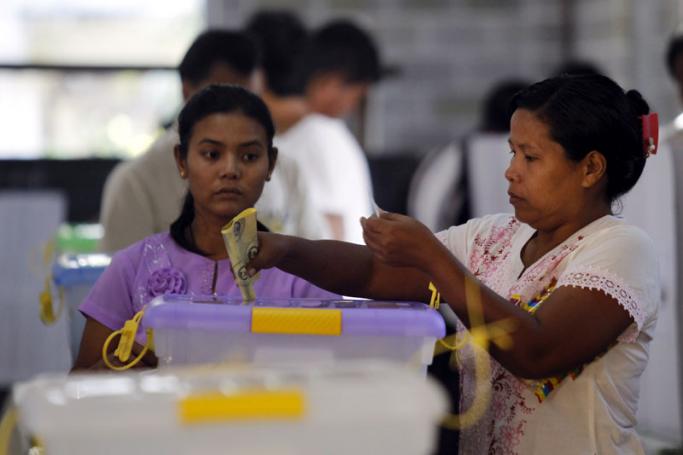Myanmar’s 8 November general election is a historic achievement that has the potential to mark a turning point in the country’s transition to democracy, FIDH said in a press release on November 13.
FIDH, or the International Federation of Human Rights, offered their praised in the wake of the poll. From 3 to 10 November, FIDH representatives met with various political parties, Election Commission officials, election observers, civil society organizations, and media workers in Yangon.
On Election Day, FIDH representatives observed voting procedures at 11 polling stations in five Yangon townships. Voting proceeded smoothly and in a well-organized manner. The few complaints that surfaced were all related to inaccuracies on the voter roll.
FIDH is urging the relevant authorities to ensure a smooth conclusion to the election process in accordance with Myanmar’s laws and regulations. This includes the declaration of the final results and the installation of successful candidates in office without undue delay. It also entails the swift, fair, and transparent adjudication of all election-related complaints.
Despite an overall positive assessment of the polls, FIDH remains concerned over significant flaws in the election’s legal framework and administration that resulted in a process that disenfranchised a sizable share of Myanmar’s population.
The 2014 amendment to the Political Parties Registration Law resulted in the exclusion of an estimated 700,000 to 800,000 persons, predominately Muslim Rohingya in Arakan State, who have been denied full citizenship. Many Rohingya politicians were also systematically denied the right to stand as candidates in the polls. In addition, several hundred thousands of people were prevented from casting their ballot as a result of the Election Commission’s decision to cancel the polls in more than 400 village-tracts and seven townships in Shan, Kachin, Mon, and Karen States and in Pegu Division over alleged concerns about armed conflict in these areas. Authorities also failed to adequately address the issue of electoral participation for Burmese migrant workers and refugees.
In addition, FIDH said it was disappointed by President Thein Sein’s failure to declare an amnesty for political prisoners on the occasion of the election, despite calls from civil society organizations and the National Human Rights Commission. About 100 political prisoners remain detained in prisons across Myanmar.
Poll praised but concerns voiced about human rights issues
14 November 2015
Poll praised but concerns voiced about human rights issues












